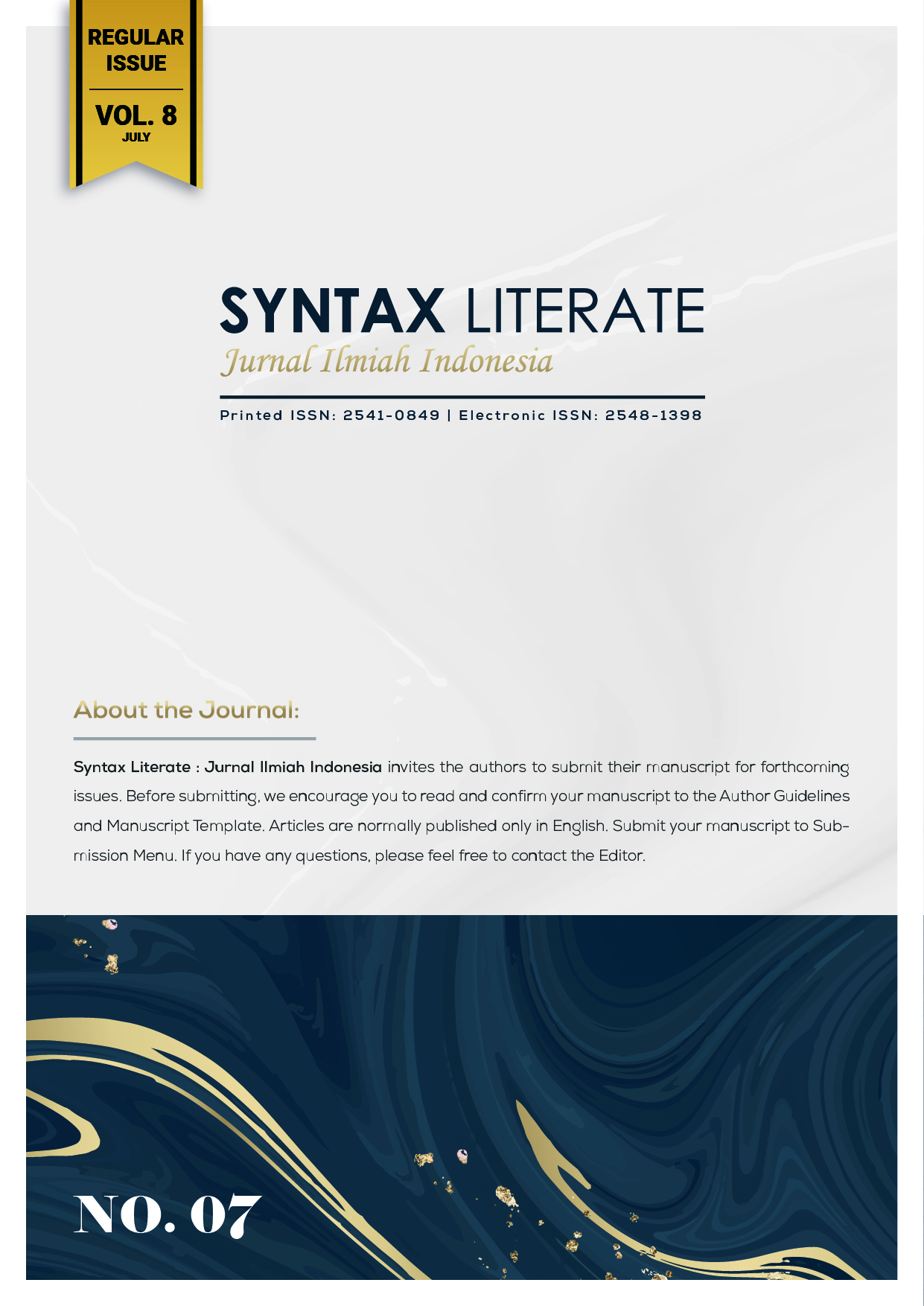Implementasi Pelepasan Bersyarat dalam Sistem Pembinaan Pemasyarakatan Menurut Kitab Undang-Undang Hukum Pidana
Abstract
Conditional release is the process of fostering prisoners outside the Detention Center/ Correctional Institution after serving at least 2/3 (two thirds) of their criminal period with the provision that 2/3 (two thirds) of the criminal period is at least 9 (nine) months. The research method used is the normative juridical method. The results of the study indicate that parole can be implemented by taking into account several provisions contained in Article 15a and Article 15b of the Criminal Code, then Article 14 paragraph (1) letter (k) of Law Number 12 of 1995 concerning Corrections also states that Prisoners are entitled to parole. Regarding the requirements and procedures for the implementation of the rights and the prisoners in prison, it is regulated in Article 43 of the Government Regulation Number 32 of 1999 concerning the Terms and Procedures for the Implementation of the Rights and the Correctional Inmates. In its implementation, the guidance and mentoring of Correctional Inmates is carried out by the Minister and carried out by Correctional Officers. The implementation of the correctional development system is carried out based on the principles of protection, equality of treatment and service, education and guidance, respect for human dignity, loss of independence is the only suffering and guarantee of the right to keep in touch with family and certain people. The concept of conditional release in the Correctional Guidance System is carried out by an official authorized to carry out conditional release of prisoners, namely the Minister of Justice or an official appointed for that purpose by taking into account the substantive requirements and administrative requirements as referred to in Article 7 paragraph (2) and Article 8 of the Decree of the Minister of Justice. Number: M. 01. PK. 04-10 of 1999, as well as paying attention to the procedures for obtaining parole as described in the discussion above.
Downloads
References
Astuti, Nabila Ratri Widya, & Dewi, Dinie Anggraeni. (2021). Pentingnya Implementasi Nilai-Nilai Pancasila Dalam Menghadapi Perkembangan IPTEK. EduPsyCouns: Journal of Education, Psychology and Counseling, 3(1), 41–49.
Danil, Elwi. (2021). Korupsi: Konsep, Tindak Pidana Dan Pemberantasannya-Rajawali Pers. PT. RajaGrafindo Persada.
DP, Sapto Handoyo. (2018). Pelaksanaan pidana bersyarat dalam sistem pemidanaan di Indonesia. PALAR (Pakuan Law Review), 4(1).
Eryansyah, Andi Marwan, & IP, A. Md. (2021). Hakikat Sistem Pemasyarakatan Sebagai Upaya Pemulihan terhadap Warga Binaan Pemasyarakatan: Perspektif Hak Asasi Manusia-Jejak Pustaka. Jejak Pustaka.
Moeljatno, S. H. (2021). KUHP (Kitab undang-undang hukum pidana). Bumi Aksara.
Nasip, Nasip, Yuliartini, Ni Putu Rai, & Mangku, Dewa Gede Sudika. (2020). Implementasi Pasal 14 Ayat (1) Undang-Undang Nomor 12 Tahun 1995 Tentang Pemsyarakatan Terkait Hak Narapidana Mendapatkan Remisi Di Lembaga Pemasyasrakatan Kelas II B Singaraja. Jurnal Komunikasi Hukum (JKH), 6(2), 560–574.
Permata, P. D. ,. Hartanto, S. H. ,. &. Bambang Sukoco, S. H. (2015). Peran Reserse Dalam Penyidikan Terhadap Tindak Pidana Pencurian Yang Dilakukan Oleh Anak (Studi Kasus di Polres Ngawi) (Doctoral dissertation, Universitas Muhammadiyah Surakarta).
Purwanto, E. (2022). Tinjauan Yuridis Tentang Pemberian Remisi Terhadap Justice Collaborator Dalam Perkara Pidana Korupsi (Doctoral dissertation, Universitas Islam Kalimantan MAB).
Ruba’i, Masruchin. (2021). Buku Ajar Hukum Pidana. Media Nusa Creative (MNC Publishing).
Situmorang, Victorio H., Ham, R., & Kav, JHRS. (2019). Lembaga Pemasyarakatan sebagai Bagian dari Penegakan Hukum. Jurnal Ilmiah Kebijakan Hukum, 13(1), 85.
Sushanty, Vera Rimbawani. (2019). Pornografi Dunia Maya Menurut Kitab Undang-Undang Hukum Pidana, Undang-Undang Pornografi Dan Undang-Undang Informasi Elektronik. Jurnal Gagasan Hukum, 1(01), 109–129.
Swardhana, Gde Made. (2020). Kebijakan kriminal dalam menghadapi perkembangan kejahatan cyber adultery. Kertha Wicaksana, 14(2), 87–95.
Wulandari, Sri. (2015). Fungsi sistem pemasyarakatan dalam merehabilitasi dan mereintegrasi sosial warga binaan pemasyarakatan. Serat Acitya, 4(2), 87.
Yanto, Yudi Hari. (2021). EFEktivitas Pembebasan Bersyarat Terhadap Pembinaan Narapidana Narkotika (Studi pada Lembaga Pemasyarakatan Kelas III Dharmasraya). UNES Law Review, 3(3), 241–249.
Copyright (c) 2023 Melssy Dinda Nursyahfitri, Feny Windiyastuti

This work is licensed under a Creative Commons Attribution-ShareAlike 4.0 International License.











